Formula Milk vs. Breast Milk: An Honest Comparison
103 hours of research7 minute read

Most health associations around the globe say that breastfeeding is best, but why do they say that? Let's dive deeper and see how baby formula compares to breastmilk.
All About Breastfeeding
Breastfeeding is a beautiful connection between a mother and the baby. Despite fulfilling the baby’s nutritional requirement, it creates this magnificent bond between them. The American Academy of Pediatrics (AAP) stresses the importance of breastfeeding as it is an all-in-one solution for the little ones in terms of nutrition, protection, and allergies prevention.
What’s In Breast Milk?
The following are the nutritional components included in breast milk:
- Antibodies - serve protection against diseases.
- Hormones - help establish an affectionate bond between mother and baby and regulate appetite.
- Stem cells - provide support, repair, and development to vital organs.
- White blood cells - strengthen the immune system.
- Probiotics - help baby’s digestive system.
- Prebiotics (oligosaccharides) - promote a healthy gut.
- Enzymes - promote the strengthening of the digestive and immune systems.
- Nucleotides - maintains the baby’s sleep cycle.
Benefits Of Breastfeeding

When the baby is born, the mother’s body actively starts producing breast milk due to the production of prolactin and other milk-producing hormones. Breastfeeding offers great benefits for both the mother and the baby.
The first breast milk feeding is rich in colostrum, which is yellowish and is ideal nourishment for your newborn.
Here is a list of benefits that are attained from breast milk by both the mother and the baby:
For the Baby
The babies’ immune system is in a developing stage when they are born. Therefore, apart from nutrition, they require a source that can strengthen their immune system and protect them from harmful pathogens. The following are some benefits of breastfeeding for newborns:
1. Availability
The most fascinating thing about breast milk is its accessibility. Breast milk is free and doesn’t cost a cent. You also don't have to prepare formula during the night.
2. Prevention of Infections
The occurrence of infection in babies during breastfeeding is less common. Breast milk strengthens the baby’s immune system to a great extent with the help of antibodies and other immune-boosting elements like white blood cells.
The colostrum, the first milk, is rich in immune cells; therefore, breast milk provides the baby with protection from different diseases, for example:
- Meningitis
- Respiratory infections
- Diarrhea
- Ear infections
- Sudden infant death syndrome (SIDS)
- Allergies
3. Ease of Digestion
Since the baby’s digestive system is developing, their little stomach experiences trouble digesting complex nutrients. Breast milk contains all essential nutrients in simpler forms like whey and casein (protein), lactose, and fat. Breast milk is all organic and is naturally made by the mother for her little one.
4. Strong Immunity
Breast milk has the potential to strengthen the immune system of the baby and offers the baby protection against harmful viruses and bacteria.
5. Contains Healthy Nutrients
Breast milk is packed with all the necessary nutrients and minerals essential for the growth and wellness of the baby. It contains a large quantity of water, proteins, carbohydrates, and vitamins.
Water helps keep the body hydrated and serves as protection to vital organs and lubrication to joints.
For Mothers

Breast milk is truly a miraculous organic product. Apart from proving the baby with benefits, it also provides the mother with the following benefits:
1. Low Risk of Postpartum Depression
It has been known that breast milk reduces the risk of postpartum depression. Postpartum depression is extremely common among mothers after birth. Through breastfeeding, both the mother and the baby relax and establish a beautiful bond. This bond eases the mother’s anxiety to a great extent.
2. Lower Risk of Diseases
Breastfeeding prevents ovarian and uterine cancer, osteoporosis, and diabetes. Thus, it protects not only the baby but also the mother. How truly magical this is!
3. Promotes Good Hormones
The skin-to-skin contact of the mother and the baby during breastfeeding stimulate the production of healthy hormones. This affection causes the healthy production of oxytocin, prolactin, and other hormones that are good for the mother’s mental and physical health.
4. Helps With Weight Loss
Breastfeeding is known to burn the calories gained during pregnancy. It also reduces the size of the uterus so the mother returns to the pre-pregnancy weight.
Breastfeeding Challenges
In some cases, breastfeeding is easy for both the mother and the baby, but sometimes it can get very tricky. Both the mother and the baby need to be patient as it will take a while to get used to the feeding. The following are the breastfeeding challenges generally experienced:
1. Personal Discomfort
In the beginning, it might be a little uncomfortable and a little painful, but it will become easier over time. Awareness programs, support groups, and discussions with your doctor will make everything easier.
2. Breastfeeding Requires Effort
The mother might experience discomfort while feeding the baby. Since breast milk digests much faster than formula milk, the baby needs to be fed more frequently.
3. Mother’s Diet
While breastfeeding, the mother often forgets to take care of their own diet. Mothers need to be aware that they need to drink and eat healthy as their diet will have a huge impact on the quality of the milk. Therefore, the mothers need to ensure proper diet and hydration during this time.
Most Popular Formulas Like Breastmilk
If you’ve made the decision not to breastfeed, whether it’s due to personal choice, medical reasons, or any other factor, it’s essential to find the right formula for your baby’s needs. While there are countless options on the market, we’ve handpicked three top-quality products that may suit your requirements. Formulated to closely resemble breast milk in nutrient composition, HiPP Dutch, Holle Goat Dutch, and Kendamil Organic offer exceptional alternatives for nourishing your little one. Let’s explore what makes each of these formulas stand out:
✓ 100% Organic Formula
✓ With added Prebiotics and Probiotics to mimic breast milk
✓ HiPP's most popular formula
Check PricePopular With Parents Because: HiPP Dutch significantly exceeds all European Union requirements for organic certification. To help kick start a healthy gut microbiome, HiPP Dutch contains probiotics and prebiotics and added whey protein to closely imitate natural breast milk protein composition.
✓ Demeter certified (Organic++)
✓ Easy-to-digest goat milk formula close to breast milk
✓ Popular for babies with sensitivity to cow's milk
Check PricePopular With Parents Because: Holle Goat Dutch is a trusted alternative for parents seeking a gentle formula for babies with cow's milk sensitivities. It is developed to closely resemble natural breast milk protein composition. Additionally, it is lactose-rich and easy to digest, as it is made from Organic Whole Goat's Milk.
✓ Contains Milk Fat Globule Membrane (MFGM) like in breast milk
✓ Vegetarian-friendly (Contains plant-based DHA and ARA)
✓ EU and British Soil Association Certified Organic
Check PricePopular With Parents Because: Kendamil Organic is beloved by parents for its commitment to wholesome, organic ingredients and sustainable practices. Its gentle formula, free from palm oil and GMOs, exclusively uses full cream cow's milk to create a lactose-based infant formula that is as close to natural human breast milk as a formula can be made.
When Breastfeeding Is Not Recommended?
There are certain situations when the mother is advised not to breastfeed the baby as it can harm baby’s health. Here are a few conditions when breastfeeding is not recommended:
1. When the Baby Has Certain Health Conditions
Breastfeeding is not recommended if the baby is suffering from a health condition as it can endanger not only the baby’s health but also the mother’s. In such cases, the mother needs to consult a doctor.
2. When Mother Has Certain Health Conditions
While breastfeeding, the mother actively transports essential nutrients from her body to the baby. If the mother suffers from a health condition, the baby is likely to get infected.
All About Formula Feeding
Formula milk is a great alternative for babies as it has a similar nutritional profile to that of breast milk. Mothers should not feel guilty for using formula milk especially if it is helping them and the baby. Infant milk formulas are manufactured in such a way that they duplicate the nutritional components of breast milk.
Not all formula milk are exact replicas of breast milk, but there are some that contain almost all the nutritional elements found in breast milk.
What’s In Formula Milk?
The following components are included in formula milk:
- Lactose
- Plant-based oils
- Vitamins
- Minerals
- Enzymes
- Amino acids
- Probiotics
- DHA
Formula milk is similar to breast milk because the nutritional components are tailored according to the age and nutritional requirement of your little one.
Pros Of Formula Feeding
The following are some benefits of formula feeding:
1. Convenience
Formula feeding is easier compared to breastfeeding; the mother can feed the baby any time. This allows moms to be more flexible with her schedule.
2. Flexibility
The mother can easily make the formula bottles and feed the little one with the help of her partner or caregiver. This way, the mother is at ease and doesn’t feel obligated.
3. Healthy Organic Ingredients
The formula milk of organic life start is rich with healthy nutrients and is available in different stages according to the age and nutritional need of the baby. All the formula milk of organic life starts to resemble breast milk to a great extent!
4. You Don’t Have To Worry About Things You Eat
With breastfeeding, the mother has to take care of her diet and has to avoid a list of things. With formula feeding, formula milk contains almost all nutrients found in breast milk.
Cons Of Formula Feeding
The following are some of the cons of formula feeding:
1. Lack Of Antibodies
Breast milk is richer in antibodies needed for strengthening the babies’ immune systems.
2. Cannot Compete With The Benefits Of Breast Milk
Breast milk is truly a natural and 100% organic production. There are formula milk products like Holle that go above and beyond to achieve beyond organic certifications sourcing ingredients from biodynamic farms.
3. Can Be Expensive
Does Breast Milk Make Babies Fuller Than Formula
When comparing breast milk and baby formula in terms of infant nutrition, parents often raise questions like Is formula more filling than breast milk? Is breast milk thinner than formula? Is formula heavier than breast milk? Is breast milk more filling than formula? Both breast milk and formula can contribute to a sense of fullness for babies. However, the key distinction lies in the digestion process. Breast milk is known to be digested more easily than formula, resulting in more frequent feedings. On the other hand, infant formula may take longer to digest, giving the perception that it is more filling compared to breast milk. Despite variations in formula consistency, it is generally formulated for easy digestion, while the thinner consistency of breast milk facilitates quicker digestion, creating the impression that it is thinner than formula. Recognizing these differences is essential for making well-informed feeding choices for your baby's well-being.
Quality formula milk is costly. Powdered formulas don’t cost as much as compared to ready-to-feed formulas.
Formula Milk vs. Breast Milk
Generally, breastfeeding is great for the babies, but there are many nutritionally complete formulas you can choose from. If you choose to go with formula feeding, check our website for the best in class organic formulas! When deciding on formula, it's important to consider options that mimic breast milk closely, as the best formula to supplement breast milk is a formula most like breast milk. Many parents find that supplementing breast milk with such formula can be beneficial in ensuring their baby receives adequate nutrition. Additionally, some may wonder whether breast milk or formula is more filling. Both provide essential nutrients, and each baby may have different preferences or responses to them. Ultimately, the decision between breastfeeding and formula feeding is a personal one, and what matters most is that your baby is nourished and thriving.
3 Most Popular Baby Formulas Like Breast Milk
Organic Life Start is committed to providing accurate, reliable, and trustworthy information to parents and caregivers. We carefully choose credible sources and follow a meticulous fact-checking process to uphold the highest standards in infant nutrition and parenting advice. To learn more about our dedication to accuracy, please explore our editorial guidelines.
Link To Sources


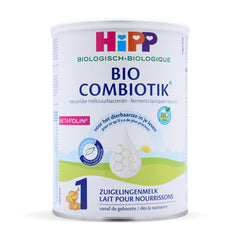
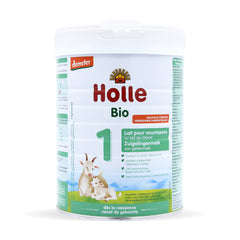
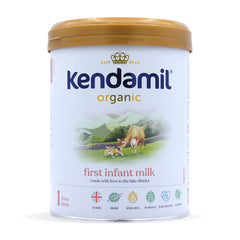
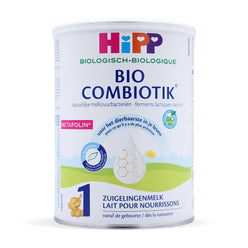
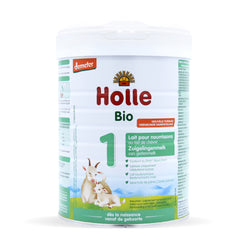
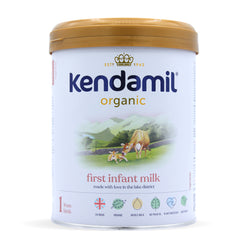






Caspian M. -
As a mom to a mix-fed baby, too, I completely understand how emotional the whole formula vs. breast milk conversation can feel. With Allona, I realized pretty quickly that feeding isn’t about choosing a “better” side—it’s about finding what keeps her growing, satisfied, and happy. Breast milk gave her such a great start, but formula filled the gaps on the days my supply just couldn’t keep up. What matters most is that she’s thriving with the balance that works for both of you. In the end, a well-fed baby and a calm, confident mom will always be the winning combination. Thank you HiPP Dutch!!!
Averi -
November 16, 2025
I was pleasantly surprised to learn how much the type of milk can support my baby’s digestion and sleep! I started with breastfeeding, but when I had to return to work, I switched to formula and initially used Similac, which wasn’t the best experience—my baby seemed a bit gassy and fussy. When I moved to HiPP Dutch formula, the difference was noticeable, with much better digestion and more restful sleep. It’s reassuring to know that even with small differences in protein or fat, formula can still support tummy comfort and steady growth.
Kannon B. -
October 30, 2025
My wife’s milk supply wasn’t sufficient, so we had to change our plans to breastfeed our daughter, Daniela. We felt we had to choose the best option for her, even if it was heartbreaking. Our search led us to Kendamil Organic, and we couldn’t be happier with our decision. It tastes and feels so natural to Daniela that it makes her feel like she’s still exclusively breastfed, and she adores it. It brings us great joy to witness her vibrant health, contentment, and remarkable growth alongside Kendamil.